July 2024, Volume 35, Issue 3
Democracy After Truth
A review of The Death of Truth, by Steven Brill, and Invisible Rulers: The People Who Turn Lies into Reality, by Renée DiResta.
July 2024, Volume 35, Issue 3
A review of The Death of Truth, by Steven Brill, and Invisible Rulers: The People Who Turn Lies into Reality, by Renée DiResta.
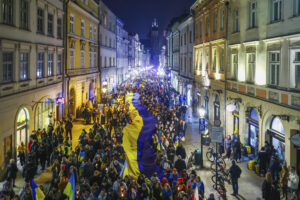

April 2024, Volume 35, Issue 2
Around the world, democracy has lost steam. If we are to regain the momentum, we must harness these essential elements and wage the struggle with the conviction that the times demand.


April 2024, Volume 35, Issue 2
The problem for democracy today is not capitalism; it is a decline in public honesty and civility. But there is an opportunity to revive our sense of national community, if we seize it.
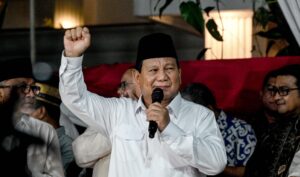
April 2024, Volume 35, Issue 2
Indonesians have just elected a former general accused of human-rights abuses, with little respect for democratic institutions. The country’s democracy has not failed, but it may soon be fighting for its life.
April 2024, Volume 35, Issue 2
For a time, Hungary looked like it was on the road to democracy. Viktor Orbán’s success derailing it may teach us how to spot a failing democracy before it is too late.
April 2024, Volume 35, Issue 2
Far-right parties in Europe’s newer democracies have been working hard to appeal to younger citizens, and for good reason: Young people’s shifting values make them a ripe target for the far right.
April 2024, Volume 35, Issue 2
The battle over rights for sexual minorities has divided countries into opposing camps. But autocrats are lashing out with one aim: countering the liberal international order.
April 2024, Volume 35, Issue 2
Praetorian politics are not making a comeback. Africa’s recent putsches have more to do with democracy’s failure to deliver than any fondness for military rule.
April 2024, Volume 35, Issue 2
Violence need not be lethal to pose a threat to democracy. Indeed, low-scale violence has proven to be a far more effective means of manipulating elections.
April 2024, Volume 35, Issue 2
Malawi is a “hard place” for democracy—its economy struggles and state capacity is weak. So how has it avoided the pitfalls that have doomed so many others?
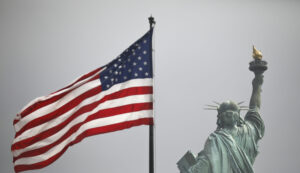

April 2024, Volume 35, Issue 2
Liberal societies are those which offer refuge from the very people they empower—through individual choice, mobility, and the possibility of exit. This is the form of liberty that most clearly elevates the liberal project.
April 2024, Volume 35, Issue 2
The power of liberalism—though limited and never revered—enables it to serve as refuge while taming the demons of liberal society.
April 2024, Volume 35, Issue 2
The liberal emphasis on unhindered mobility comes with costs, particularly for those unable to leave.
April 2024, Volume 35, Issue 2
What distinguishes liberal societies from all others is that they tolerate immoral behavior. It is this tolerance that protects us not just from our leaders but ourselves.
April 2024, Volume 35, Issue 2
The belief we can “escape” remains a part of the liberal imagination. In truth, it is realized in the form of detachment from any community, an exodus without refuge.
April 2024, Volume 35, Issue 2
A liberal society must reckon the demands of the common good, while offering what we most crave—something worth sacrificing for.
April 2024, Volume 35, Issue 2
A review of How to Win an Information War: The Propagandist Who Outwitted Hitler, by Peter Pomerantsev.
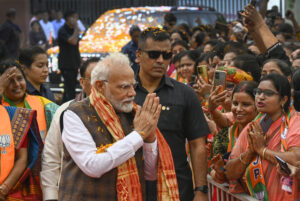

January 2024, Volume 35, Issue 1
While the histories of white supremacy and Hindu supremacy are different, their political objectives are much the same. The BJP is forging a regime of exclusion and oppression as brutal as the Jim Crow South. Only India’s voters can reverse its advance.
January 2024, Volume 35, Issue 1
The BJP is ruling with a heavier hand than ever before, attacking opponents and silencing critics. Ironically, these may be the ideal conditions for a democratic revival—if the opposition seizes the moment.
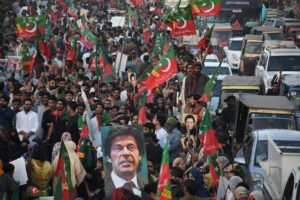
January 2024, Volume 35, Issue 1
The schism between Pakistan’s military establishment and former prime minister Imran Khan marks a new era of instability. Is the country experiencing the rise of an autocratic deep state or the fall of authoritarian populism?